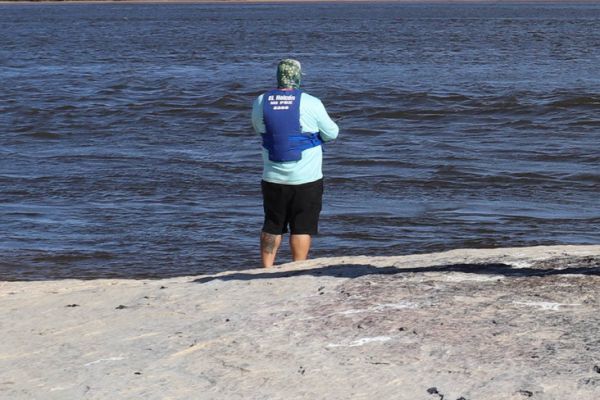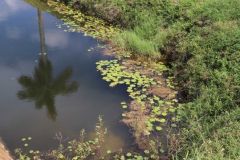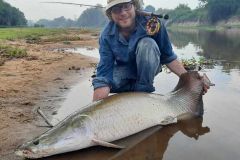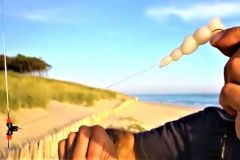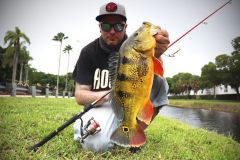Not mastering your equipment
Before setting out, you need to master your equipment, especially as once you're there, other factors that you may never have encountered before may be present, such as currents, wind, waves...
I have the example of a person, on a trip in search of peacock bass, who bought his first casting set before coming. Unfortunately, this person spent his time trying to understand how his set worked and missed out on his trip.
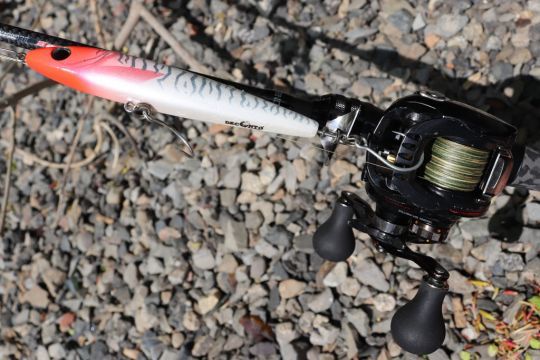
On the same trip, another person had set out to fly fish, but in the same way, she spent her time understanding the technique.
So it's best to use techniques you've mastered, or to learn and train in advance on the techniques you want to practice, and not discover them once you're there.
Overestimating your health
Going fishing abroad, in conditions to which we're not accustomed year-round, can quickly prove hard to bear physically. Seasickness, tolerance to heat, cold or humidity, reduced rest periods - these are all conditions to which you need to be able to adapt quickly.
It's important to take care of yourself right from the start of your trip, so you can be sure you'll enjoy it to the end. This means finding out about the physical conditions required for a particular trip, and taking them into account.
Fishing for dorado in the Bolivian jungle or GT trevally in the Indian Ocean requires a certain amount of physical preparation and stamina.
Not mastering knots
Everyday and travel fishing don't necessarily use the same knots and line diameters. It's important to train yourself to tie knots you're not used to, so you can master them once you're on the spot.
If you're not sure you remember, you can always print out the method or record an instructional video on your phone. Knowing how to tie good knots quickly is your best guarantee of catching the fish you want.
Not having the right clothing
Whether it's the cold, the heat, the sun, the rain or whatever, you need to plan your clothing according to the conditions you'll encounter on site. I have the example of someone who came without gloves or pants, in the middle of the Colombian jungle. At the end of the trip, even though he had the reflex to put on sunscreen to avoid burns, the mosquitoes didn't miss him and he suffered from itching.
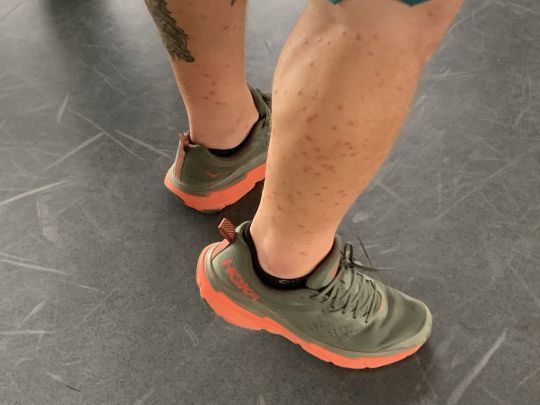
Letting your guard down
On fishing trips, which for many of us are vacations, we can be led to relax our vigilance, take risks and forget certain things we wouldn't do on a day-to-day basis.
For example, while safety standards vary from country to country, such as the wearing of life jackets, this doesn't mean you shouldn't wear one. If you can't swim and you're fishing from a boat or near dangerous areas, it's clearly advisable to take along and wear a lifejacket at all times. This reminds us of the dramatic accident in 2022, in which a fisherman drowned on the Orinoco, a powerful river in South America.
One of the most important things to remember is that you need to be well-prepared to get your stay off to the best possible start. Time on site is short and precious, so make the most of it and be ready to go from day one.
This preparation will obviously depend on the type of trip, what you're looking for and what you can find on site. In any case, getting informed, being prepared and knowing your skills are good foundations for a successful trip!

 /
/ 